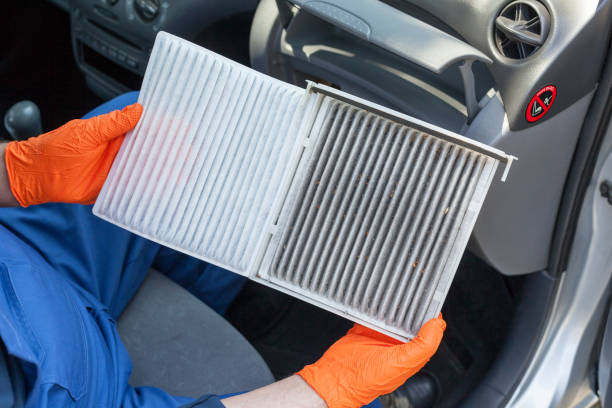

Air and Cabin Filters in Raleigh NC play crucial roles in maintaining the performance and comfort of your vehicle. While they might seem similar at first glance, they serve different purposes. Understanding their differences can help you take better care of your car and ensure you are scheduling regular maintenance, including air & cabin filter replacement in Raleigh NC.
An air filter is an essential component of your vehicle's engine system. It prevents dirt, debris, and other contaminants from entering the engine. By keeping the engine clean, the air filter ensures optimal combustion, which in turn improves fuel efficiency and reduces emissions. Without a clean air filter, your engine could struggle to perform, leading to potential damage and costly repairs.
Cabin filters, on the other hand, are designed to maintain the quality of the air inside your car. These filters trap dust, pollen, and other airborne particles, ensuring that the air circulating through your vehicle's air conditioning system is clean. Cabin filters are especially important for those who suffer from allergies or respiratory issues, as they contribute significantly to maintaining a healthier and more comfortable driving environment.
The air filter is typically located under the hood of your car, close to the engine. It is housed in a rectangular or cylindrical box, depending on your vehicle's make and model. Cabin filters, however, are usually found behind the glove compartment or under the dashboard. Their placement depends on your vehicle’s design, but they are always positioned to filter air entering the cabin through the ventilation system.
Air filters need to be replaced every 12,000 to 15,000 miles, depending on your driving conditions. If you frequently drive on dusty roads or in areas with heavy air pollution, you may need to replace it more often. Cabin filters, on the other hand, typically require replacement every 15,000 to 30,000 miles. Regular air & cabin filter replacement ensures that your vehicle performs at its best while providing you with clean air to breathe.
A dirty air filter can significantly impact your vehicle's performance. It restricts airflow to the engine, which can cause it to work harder and consume more fuel. Over time, this could lead to engine overheating or damage. Regular air filter replacement is a simple and affordable way to avoid such issues. If you suspect that your vehicle’s performance has declined, an Tire Shop at a trusted service center can identify whether a clogged air filter is the cause.
A dirty cabin filter can reduce the efficiency of your car’s air conditioning system. It can also lead to unpleasant odors and poor air quality inside the vehicle. If you notice a musty smell or reduced airflow from your vents, it’s time to replace the cabin filter. Neglecting this component can make driving uncomfortable, particularly during hot or cold seasons when the air conditioning system is in heavy use.
The primary difference between air and cabin filters lies in their functions. While air filters protect your engine, cabin filters protect you and your passengers. Another difference is their location; air filters are part of the engine system, whereas cabin filters are integrated into the HVAC system. Additionally, air filters tend to deal with larger particles like dirt and debris, while cabin filters focus on smaller, airborne pollutants like dust and allergens.
Timely air & cabin filter replacement offers several advantages. Clean air filters help your engine perform efficiently, leading to better fuel economy and reduced emissions. Similarly, clean cabin filters ensure that you and your passengers enjoy fresh, clean air during every drive. Replacing filters regularly also prevents potential issues like engine damage or HVAC system strain, saving you from costly repairs in the long run.
Signs that your air filter needs replacing include reduced engine power, poor fuel efficiency, or unusual engine noises. For cabin filters, common indicators are unpleasant odors, reduced airflow from vents, or visible dirt on the filter itself. If you’re unsure, visiting a tire shop or an auto service center in Raleigh can help you determine whether your filters need attention.
While some car owners prefer to replace air and cabin filters themselves, professional services can ensure the job is done correctly. Experienced technicians can inspect your filters, recommend the right replacements, and perform other necessary services, such as an air conditioning service or engine diagnostic. This comprehensive approach ensures your vehicle remains in optimal condition.
When Air Conditioning Service in Raleigh NCit’s important to choose high-quality products that are compatible with your vehicle. Low-quality filters might not provide the level of protection your car needs, which could lead to further issues. Always check your vehicle’s manual for specifications and consult a professional service center if you’re unsure about the best filter options for your car.